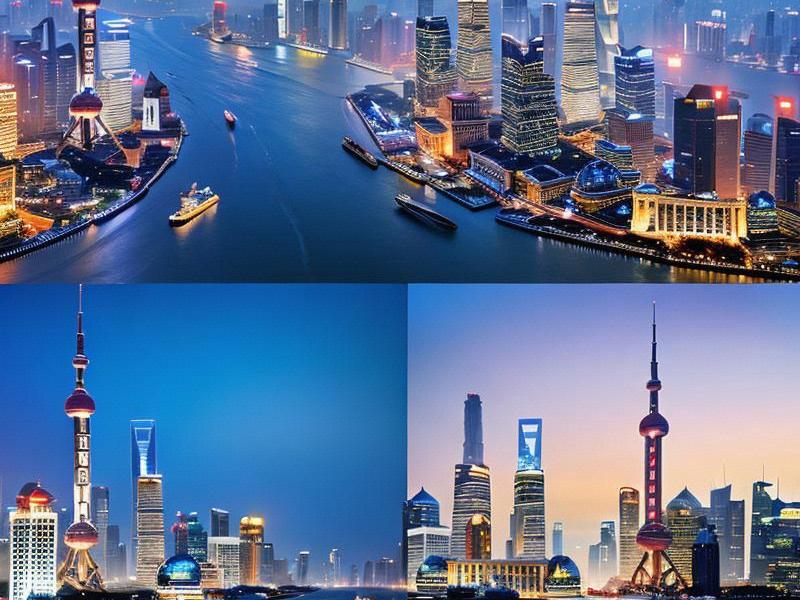
Nestled along the eastern coast of China, Shanghai is not just a city; it is a symbol of China's transformation over the past century. From a modest fishing village in the 19th century to a global financial hub today, Shanghai's journey is nothing short of remarkable.
The city's strategic location at the mouth of the Yangtze River has been pivotal in its rise to prominence. By the mid-19th century, Shanghai had become one of the first treaty ports opened to foreign trade, attracting merchants and missionaries from around the world. This period of opening up laid the foundation for Shanghai's cosmopolitan character and economic prowess.
In the early 20th century, Shanghai was known as the "Paris of the East," a nickname that reflected its vibrant mix of cultures, architecture, and nightlife. The Bund, with its colonial-era buildings, stands as a testament to this era, offering a glimpse into the city's historical charm.
After the founding of the People's Republic of China in 1949, Shanghai underwent significant changes. The city shifted its focus from commerce to industry, becoming a major center for manufacturing. However, it wasn't until the late 20th century that Shanghai began to reclaim its status as a global financial hub.
上海龙凤阿拉后花园 The economic reforms initiated in the late 1970s by Deng Xiaoping marked a new era for Shanghai. The establishment of the Pudong New Area in 1990 was a turning point, with the construction of iconic landmarks such as the Oriental Pearl Tower and the Jin Mao Tower signaling Shanghai's return to the world stage.
Today, Shanghai is the largest city in China and one of the world's most populous metropolitan areas. It is a leading global financial center, housing the Shanghai Stock Exchange and being home to numerous multinational corporations. The city's GDP ranks among the highest in the world, driven by its robust manufacturing, trade, and service sectors.
Shanghai's urban landscape is a blend of the old and the new. The historic Nanjing Road and the bustling Huaihai Road showcase the city's commercial vibrancy, while the futuristic skyline of Lujiazui is a symbol of its modernity. The city's rapid urbanization has led to the development of world-class infrastructure, including the Maglev train connecting Pudong International Airport to the city center in just minutes.
Culturally, Shanghai is a melting pot, reflecting the influences of various ethnic groups and historical periods. The city is known for its Shikumen architecture, a unique style that combines Western and Chinese elements. The French Concession, with its tree-lined streets and charming cafes, offers a glimpse into the city's colonial past.
上海贵族宝贝龙凤楼 Shanghai's culinary scene is as diverse as its culture, offering everything from traditional Shanghainese dishes like Xiaolongbao (soup dumplings) to international cuisines. The city's night markets and food streets are popular among locals and tourists alike, providing a taste of the vibrant street life.
Education and innovation are also at the heart of Shanghai's identity. The city is home to prestigious universities such as Fudan University and Tongji University, attracting students and researchers from around the world. Shanghai's commitment to innovation is evident in its numerous technology parks and research institutions, which are driving advancements in fields such as artificial intelligence and biotechnology.
The city's cultural institutions, including the Shanghai Museum and the Shanghai Grand Theatre, showcase its rich artistic heritage and commitment to the arts. The annual Shanghai International Film Festival is a major event, attracting filmmakers and audiences from across the globe.
爱上海419 Shanghai's role in global affairs is also noteworthy. As a member of the World Expo Organizing Committee, the city successfully hosted the 2010 World Expo, showcasing its ability to organize large-scale international events. The Expo left a lasting legacy, with the transformation of the former Expo site into the Yu Garden area, a vibrant cultural and recreational space.
Environmental sustainability is a growing focus for Shanghai. The city has implemented various initiatives to reduce pollution and promote green development. The construction of the Zhangjiang Hi-Tech Park highlights Shanghai's commitment to fostering a sustainable and innovative economy.
Tourism is a significant contributor to Shanghai's economy, with millions of visitors drawn to its attractions each year. The city's landmarks, such as the Oriental Pearl Tower, the Jin Mao Tower, and the Shanghai Tower, offer breathtaking views of the skyline. The Yu Garden, the Former French Concession, and the Shanghai Museum provide insights into the city's history and culture.
In conclusion, Shanghai is a city that embodies the spirit of China's transformation and globalization. Its rich history, economic significance, cultural diversity, and modern urban landscape make it a fascinating destination for visitors and a model for urban development worldwide. As Shanghai continues to evolve, it remains a symbol of China's aspirations and achievements on the global stage.
